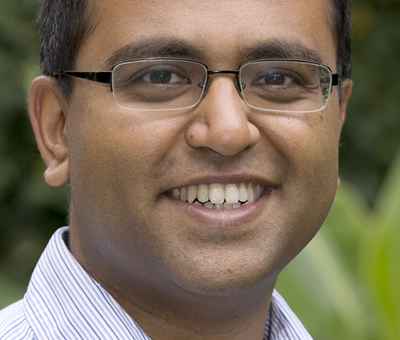
Shaylesh Patel had the traditional career route of first working for a big accounting firm then becoming the Financial Director of a growing company, in his case, in travel. But then he read a report that said that, for the first time in recent history, the life expectancy of his children was less than his own.
Seeing the connection between the way we lead our lives and its effect on our health and our planet, he formed Healthy Planet with a friend, an expert geographer.
Healthy Planet has a very simple premise. Through the website, you can adopt some land and everything on it in one of the 77,000 national parks around the world. Ninety percent of the money you provide goes straight to the land in question, and you can then choose which particular local sustainability project you wish to support.
For example, if you are concerned about the Amazonian rainforest you can cover the costs of a park ranger who will help prevent illegal logging in your chosen park. Patel has teamed up with Google Earth, so you can monitor your land directly and feel a real connection with the precise piece of real estate that you care about.
Healthy Planet is already a great success, with a wide range of customers. Individuals adopt land as gifts for themselves and their children; schools use the system for fundraising and creating geography, ICT and citizenship projects; large organisations use their Corporate Social Responsibility budgets to help save the planet in this very specific, efficient and personal way.
While it is a registered charity, it is also a bona-fide social enterprise. It is run like a proper business; for example, Patel and all the Healthy Planet team are measured solely on their performance like any good enterprise.
Entrepreneurs are always busy thinking of ways to create wealth, and the big difference between the recent recession and the last one is that this time most of the young people who come to me for help are social entrepreneurs. Some like Patel are busy trying to save the planet or help people in the Third World directly. Others are building more traditional commercial ventures designed to make money, but also have one eye on helping those less fortunate than themselves, without detriment to their business.
Entrepreneurship does not have to involve your asking unpleasant people for money or putting your house on the line. In the first instance you should kick some ideas around with a friend who has the opposite set of skills to yourself. If you are good at starting things, they are good finishers, if you are introvert, they are extrovert; if you are bad with money, then they understand finance, and so on.
You need to identify a problem and find people who trust you enough to take that problem away, and will also give you money for the privilege. If you can then deliver your product or service profitably, you have the basis for a business.
After that, the best advice I can give is to be three things: local, reliable and nice. People prefer to buy from someone close by, they want you to deliver valuable products and services and finally, to be easy to deal with.
If you follow these three simple rules, then you will be a successful entrepreneur; the rest, as they say, is detail.
A first generation British Asian and son of a businessman, former accountant and Finance Director Shaylesh Patel has used his network and prize-winning commercial experience to transform his interest in his children’s welfare into a social enterprise and model like no other on the planet: Healthy Planet. www.healthyplanet.org
This article is based on a chapter from ‘This Is How Yoodoo It’ – a collection of Financial Times columns written by Mike Southon. You can buy this book in hard copy and in Kindle version here: http://tinyurl.com/YoodooBook




